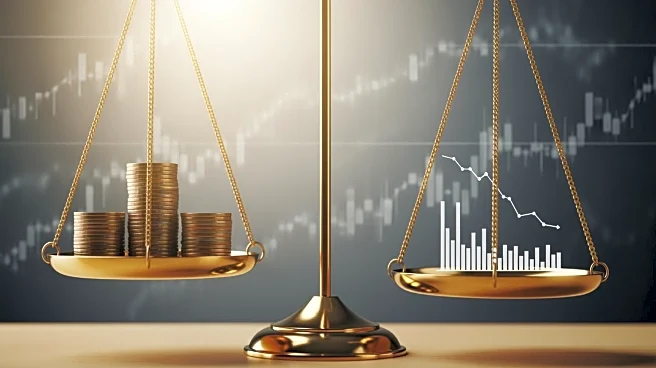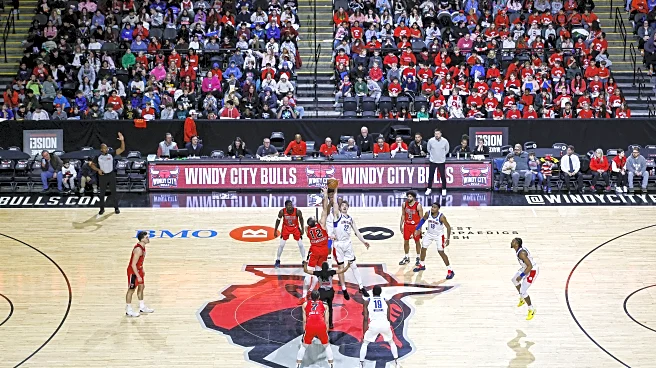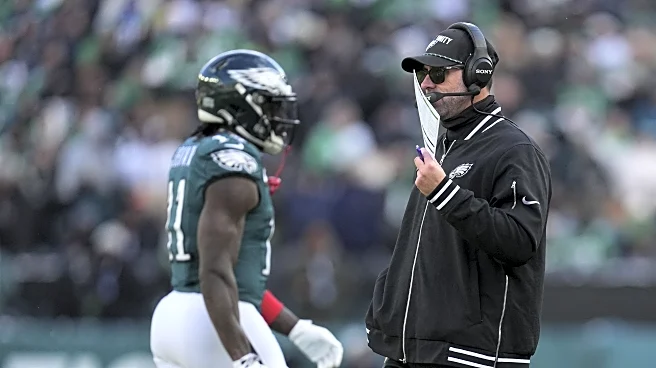What's Happening?
The U.S. economy is showing signs of strain as middle-class households pull back on spending due to financial pressures. Economists are comparing the situation to a 'Jenga tower,' warning that the economy could collapse if stock market declines affect
high-income household wealth. The wealthiest households are currently driving economic growth, accounting for two-thirds of all spending, while the bottom 80% have significantly reduced their share. This disparity is creating a more pronounced divide between high-income and lower-income families, raising concerns about the economy's vulnerability to downturns.
Why It's Important?
The reduction in spending by middle-class households is significant as it highlights the growing economic divide in the U.S. This situation could lead to increased social unrest and discontent, as lower-income families struggle with high living costs and corporate layoffs. The reliance on high-income households to sustain economic growth makes the economy susceptible to shocks, such as stock market declines. This could potentially lead to a recession, affecting employment rates and overall economic stability. Policymakers and economists are closely monitoring these trends to address the underlying issues and prevent further economic deterioration.
What's Next?
Economists are keeping a close watch on the spending patterns of high-income households, as any downturn in the stock market could significantly impact their ability to sustain economic growth. The Federal Reserve and other financial institutions may need to consider policy adjustments to address the economic divide and support lower-income families. Additionally, companies are noticing shifts in consumer behavior, with middle-income shoppers becoming more selective in their spending. This could lead to changes in business strategies and product offerings to cater to the evolving needs of consumers.















